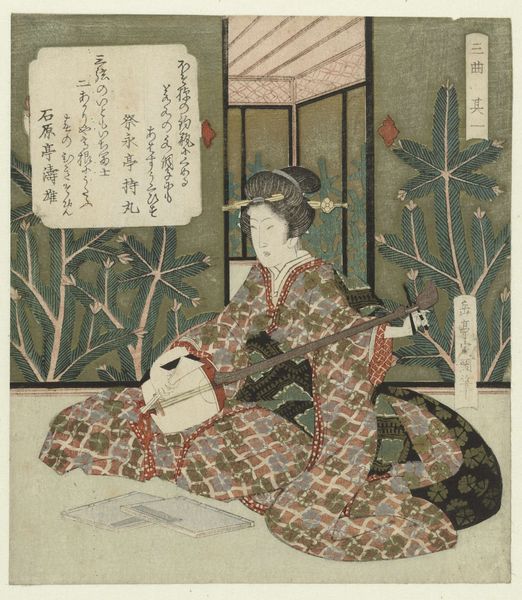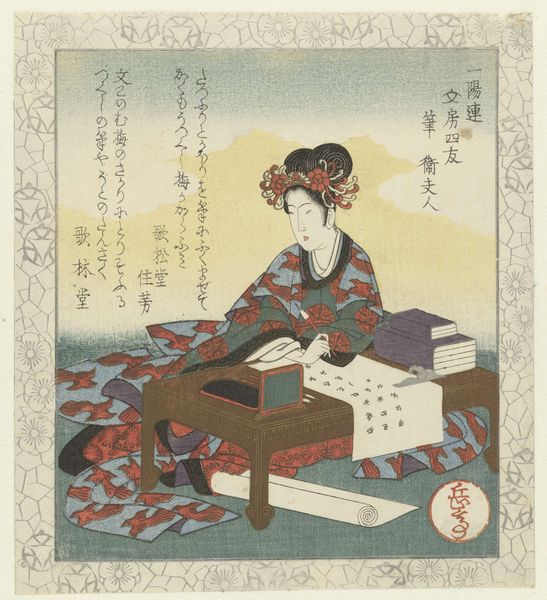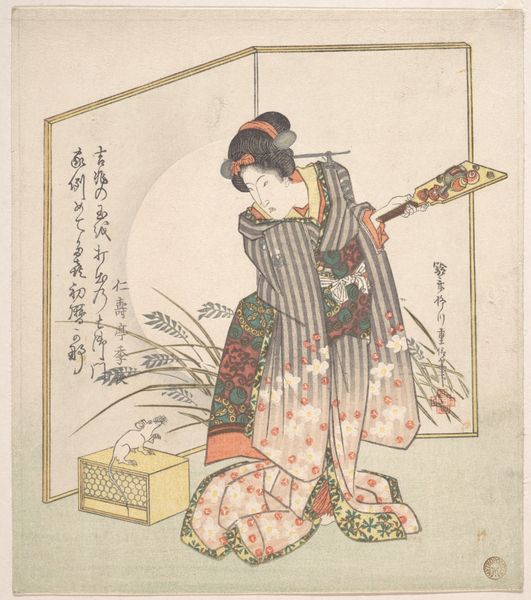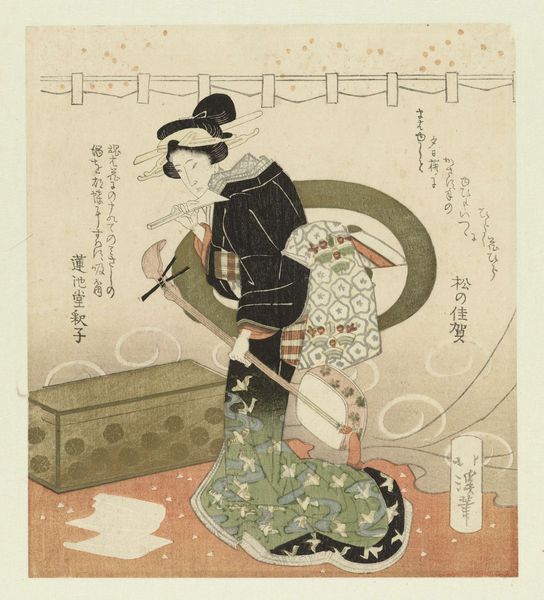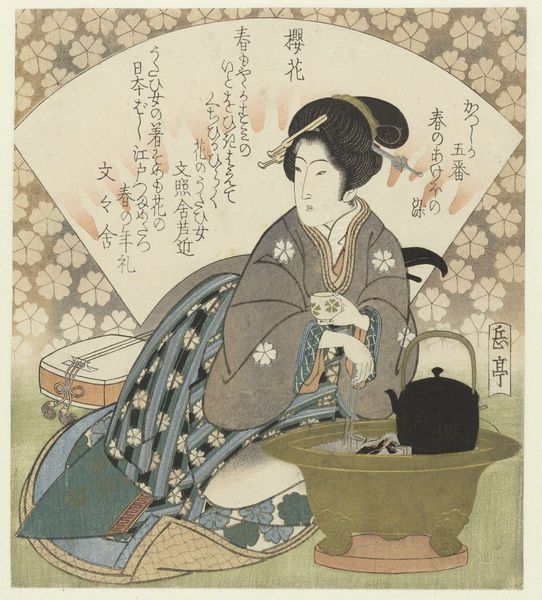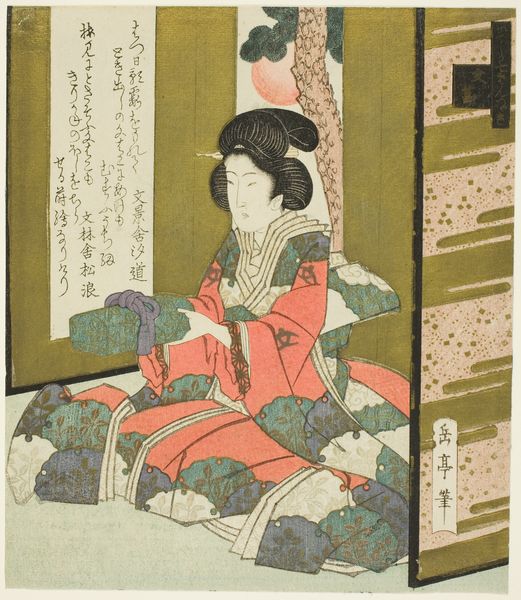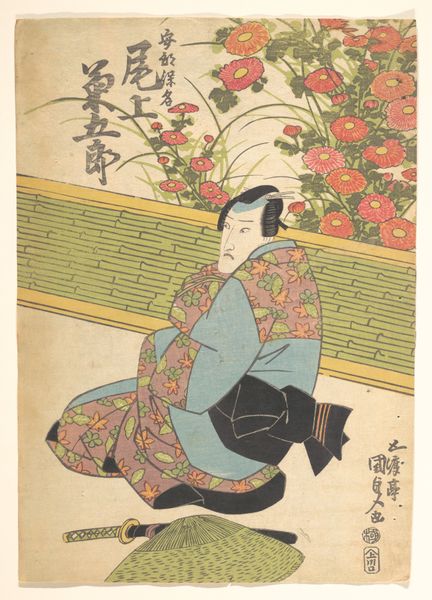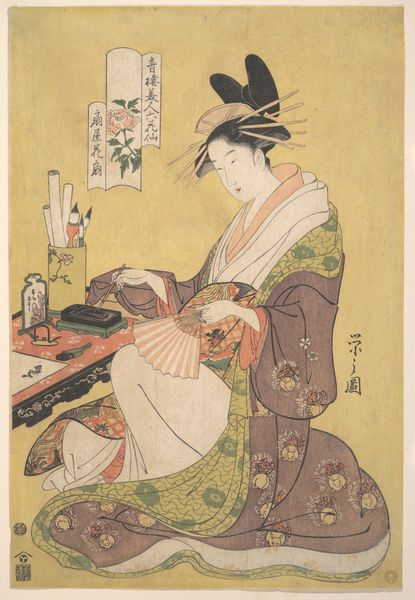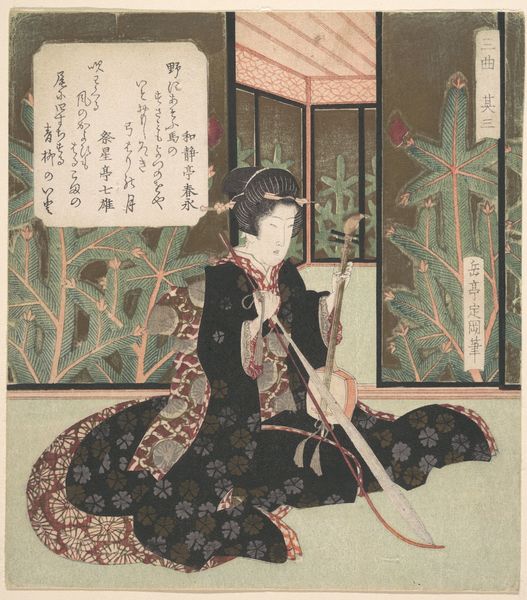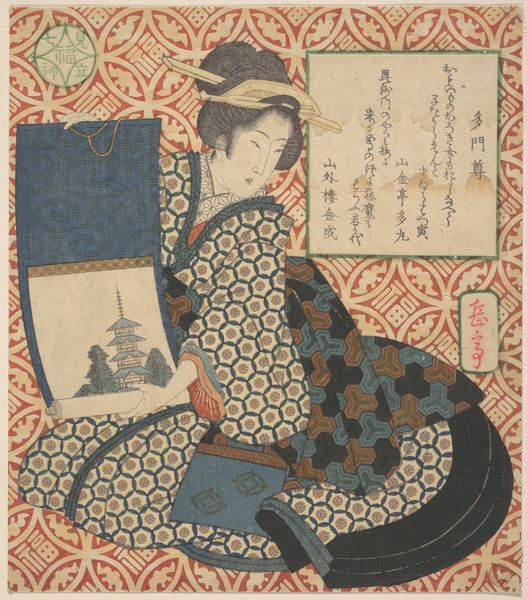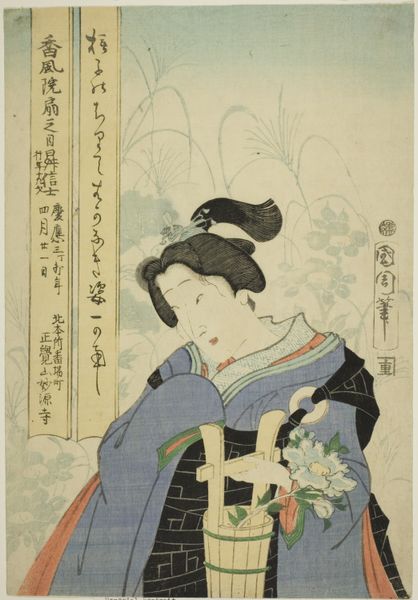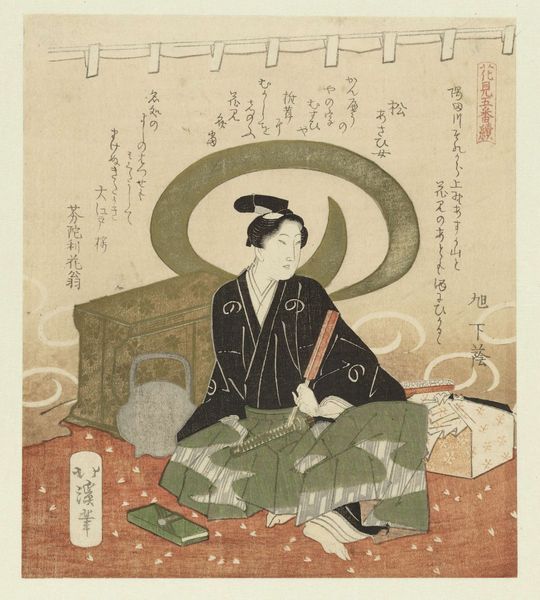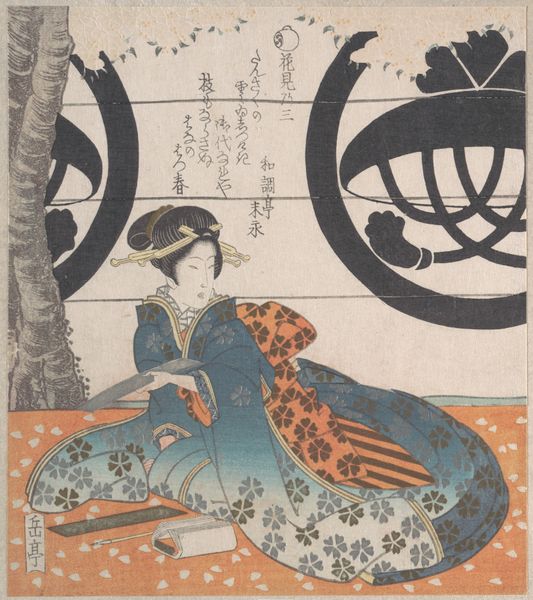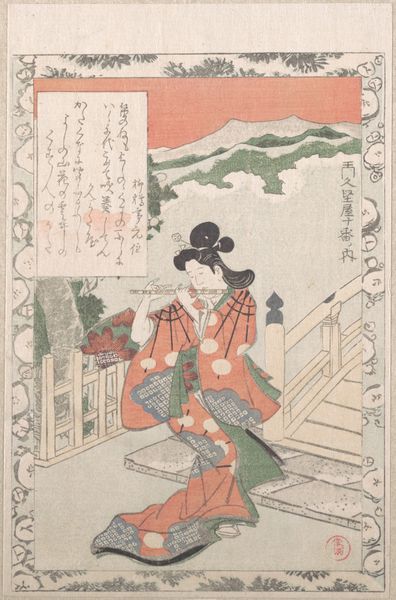
Nuji (Japanese: Joki; female attendant who compiled writings by Daoist sages); “Paper” (Kami), from Four Friends of the Writing Table for the Ichiyō Poetry Circle (Ichiyō-ren Bunbō shiyū) From the Spring Rain Collection (Harusame shū), vol. 1 1817 - 1837
0:00
0:00
print, paper, ink
#
water colours
# print
#
asian-art
#
ukiyo-e
#
japan
#
figuration
#
paper
#
ink
#
men
Dimensions: 8 x 7 1/16 in. (20.3 x 17.9 cm)
Copyright: Public Domain
This woodblock print by Yashima Gakutei depicts a female attendant, a "Nuji," surrounded by the tools of scholarship. Dominating the scene, the scroll in her hands and the stacks of books beside her speak to the importance of the written word in the 19th-century Japanese intellectual life. The act of writing and its implements carry a weighty history. From the ancient Egyptians' papyrus to the medieval European illuminated manuscripts, writing has been a sacred, transformative practice. Notice the plum blossoms on the attendant’s robes, a motif often associated with spring. These also signal the renewal of life and a connection to the natural world, reflecting a deep-seated belief in the cyclical nature of existence. Consider how this scene resonates with images of scribes across cultures. The emotional weight lies in the quiet concentration of the figure, inviting viewers to reflect on the profound power of knowledge. This image, like so many others throughout time, touches upon the collective human desire to preserve, understand, and pass on our stories.
Comments
No comments
Be the first to comment and join the conversation on the ultimate creative platform.
